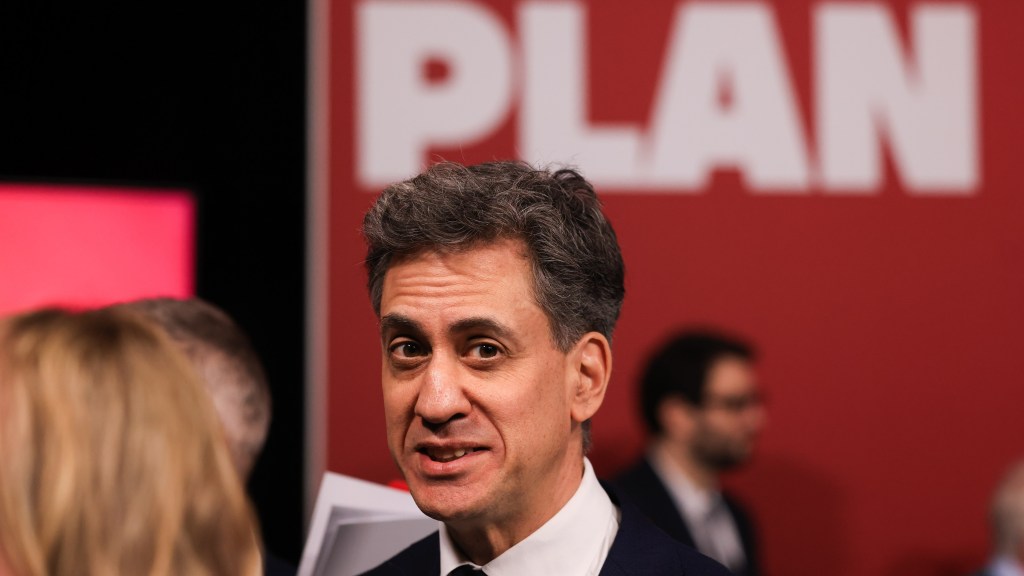Ed Miliband Advocates for New Nuclear Power Plants to Decarbonise UK Energy System
Ed Miliband emphasized the necessity of constructing new nuclear power stations to achieve the decarbonisation of Britain’s energy infrastructure. He asserted that using taxpayer funds could yield substantial benefits for the nation.
In his first address regarding nuclear energy since resuming the role of energy secretary, Miliband acknowledged the “immense challenges” faced by public finances but affirmed the government’s commitment to advance nuclear energy through both public and private investments.
These optimistic statements were made during a speech to the Nuclear Industry Association, coinciding with an impending decision regarding the approval of Sizewell C, a 3.2 gigawatt nuclear facility in Suffolk. The decision is expected to be made in the spring.
This facility could supply electricity to approximately six million homes and would mark the second nuclear power station constructed in the UK in over twenty years. The project is predominantly government-owned in collaboration with EDF, the French state-supported energy provider, while also seeking private investment.
Additionally, the announcement of the winners in a government competition for funding to establish the UK’s first mini-nuclear power plants is scheduled for early next year. Miliband clarified that Great British Nuclear, which is managing this selection process, operates as an independent entity separate from Great British Energy.
Currently, nuclear energy contributes around 14 percent to the UK’s electricity generation, a decrease from roughly a quarter in the late 1990s. Attempts to rejuvenate the nuclear sector have encountered significant setbacks, particularly with Hinkley Point C, the first new nuclear plant in over twenty years, which is now up to six years delayed and facing substantial budget overruns.
Miliband noted a shift in public perception since his last tenure in 2009, when nuclear construction faced considerable opposition from environmental advocates.
“Now, more individuals recognize that while nuclear energy has its challenges, they are outweighed by the urgent issues regarding energy security and climate change,” he stated.
The energy secretary insisted that nuclear power is vital for the future of clean electricity, highlighting government forecasts predicting a 50 percent increase in electricity demand by 2035, and a doubling by 2050. He proposed that “electrifying everything possible” is a prudent approach moving forward.
Furthermore, EDF revealed plans to prolong the operational lifespan of four of the five remaining UK power plants until at least the end of the decade, leaving only Sizewell B and Hinkley Point C operational into the 2030s.




Post Comment